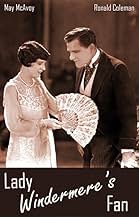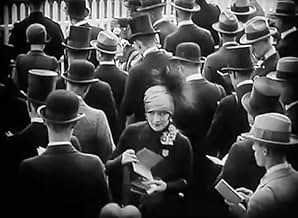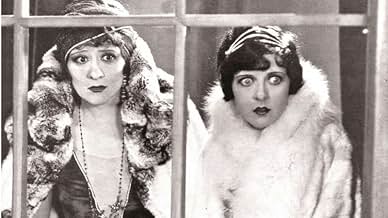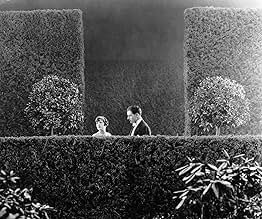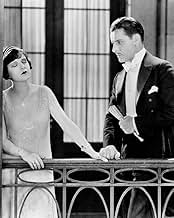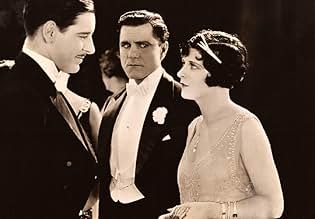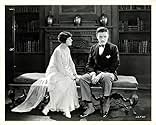ÉVALUATION IMDb
7,2/10
1,5 k
MA NOTE
Une femme mondaine croit que son mari la trompe, une méprise qui pourrait avoir des conséquences désastreuses pour tous les protagonistes.Une femme mondaine croit que son mari la trompe, une méprise qui pourrait avoir des conséquences désastreuses pour tous les protagonistes.Une femme mondaine croit que son mari la trompe, une méprise qui pourrait avoir des conséquences désastreuses pour tous les protagonistes.
- Prix
- 1 victoire au total
Edward Martindel
- Lord Augustus Lorton
- (as Edw. Martindel)
Carrie Daumery
- The Duchess of Berwick
- (as Mme. Daumery)
Billie Bennett
- Lady Plymdale
- (uncredited)
Michael Dark
- Party Guest
- (uncredited)
Helen Dunbar
- Mrs. Cowper-Cowper
- (uncredited)
Frank Finch Smiles
- Waiter with Party Guest List
- (uncredited)
Larry Steers
- Party Guest
- (uncredited)
Ellinor Vanderveer
- Party Guest
- (uncredited)
Percy Williams
- Waiter at the Party
- (uncredited)
Avis en vedette
Perhaps only Ernst Lubitsch could have created this masterpiece, a play by one of the world's greatest users of words turned into a silent motion picture.
I remember seeing this at the late and very lamented Silent Movie Theatre on Fairfax in Los Angeles, in the 1970s. And I remember marveling then how Lubitsch was able to create such a magnificent work.
Yes, he had the help of superlative actors -- May McAvoy's performance was truly a revelation -- and of course had the basic Wilde play as well as Julien Josephson's adaption, but it's his camera placement and where the actors performed that make this such a wonder.
I cannot recommend too strongly this "Lady Windermere's Fan," but when you go to YouTube, be careful to check out the various editions before you settle down to watch. One is terrible, but the one I saw is great. Worthy of a great movie.
I remember seeing this at the late and very lamented Silent Movie Theatre on Fairfax in Los Angeles, in the 1970s. And I remember marveling then how Lubitsch was able to create such a magnificent work.
Yes, he had the help of superlative actors -- May McAvoy's performance was truly a revelation -- and of course had the basic Wilde play as well as Julien Josephson's adaption, but it's his camera placement and where the actors performed that make this such a wonder.
I cannot recommend too strongly this "Lady Windermere's Fan," but when you go to YouTube, be careful to check out the various editions before you settle down to watch. One is terrible, but the one I saw is great. Worthy of a great movie.
In "Lady Windermere's Fan" the great Ernst Lubitsch may have bitten off a bit more than he can chew. First and foremost, how can you reproduce Oscar Wilde's witty dialogue in a SILENT FILM?? True, the famous 'Lubitsch touch' is apparent, but minus Wilde it becomes a romantic drama.
The players are excellent and above reproach, in particular Irene Rich as Mrs. Erlynne - in fact, it is basically her picture. A youthful Ronald Colman as Lord Darlington underplays his role but is urbane and charming (in truth, I have not read or seen the play before but that is my perception). I have always liked Colman in everything I have seen him in, but, of course, you can't hear his marvelous voice and diction here.
Despite these drawbacks I enjoyed the film and felt the photography was exceptionally good. I just felt it would have been even better with a soundtrack, as it lacks the requisite bite and panache.
Sadly, a drawing room comedy of manners such as "Lady Windermere's Fan" wouldn't work today, as modern day audiences would be baffled by the subtlety and lack of action. That may be why it hasn't been remade successfully in the sound era. I give it a rating of 7.
The players are excellent and above reproach, in particular Irene Rich as Mrs. Erlynne - in fact, it is basically her picture. A youthful Ronald Colman as Lord Darlington underplays his role but is urbane and charming (in truth, I have not read or seen the play before but that is my perception). I have always liked Colman in everything I have seen him in, but, of course, you can't hear his marvelous voice and diction here.
Despite these drawbacks I enjoyed the film and felt the photography was exceptionally good. I just felt it would have been even better with a soundtrack, as it lacks the requisite bite and panache.
Sadly, a drawing room comedy of manners such as "Lady Windermere's Fan" wouldn't work today, as modern day audiences would be baffled by the subtlety and lack of action. That may be why it hasn't been remade successfully in the sound era. I give it a rating of 7.
An epigram-less silent screen version of Oscar Wilde by Ernst Lubitsch is likely to be a contest rather than a collaboration (and not surprisingly Lubitsch wins).
Irene Rich's handsome profile in the role of Mrs Erlynne provides a sight to savour throughout, and the race meet at which we see her from constantly switching viewpoints as people study her through their binoculars is one of the visual & cinematic highlights of the film.
Irene Rich's handsome profile in the role of Mrs Erlynne provides a sight to savour throughout, and the race meet at which we see her from constantly switching viewpoints as people study her through their binoculars is one of the visual & cinematic highlights of the film.
Nobody was as savvy about the intricacies of the human heart as Lubitsch, and of how virtue is never an absolute.
This warmly empathetic, highly sophisticated gem is an adaptation of Oscar Wilde, with virtually none of the play's dialog utilized, but as suggestive and outrageous as Wilde himself, conceived, framed and edited as pure cinema.
From the exact same period as Cecil B. DeMille's infinitely more crass sex comedies and Charles Chaplin's equally brilliant and morally ambiguous 'The Woman of Paris', but carried by an indistinguishably European sensibility. Irene Rich as the woman who sacrifices herself in secret is impossibly glamorous and subtle, May McAvoy is truly heartbreaking as the socialite suspicious of her husband's philandering, but Ronald Colman, alas, is left with nothing much to do except smolder sexily at the fringes with those impertinently raised eyebrows.
A highlight is the Ascot game, a marvel of choreography and mime, a delicious baiting of upper class hypocrisy.
This warmly empathetic, highly sophisticated gem is an adaptation of Oscar Wilde, with virtually none of the play's dialog utilized, but as suggestive and outrageous as Wilde himself, conceived, framed and edited as pure cinema.
From the exact same period as Cecil B. DeMille's infinitely more crass sex comedies and Charles Chaplin's equally brilliant and morally ambiguous 'The Woman of Paris', but carried by an indistinguishably European sensibility. Irene Rich as the woman who sacrifices herself in secret is impossibly glamorous and subtle, May McAvoy is truly heartbreaking as the socialite suspicious of her husband's philandering, but Ronald Colman, alas, is left with nothing much to do except smolder sexily at the fringes with those impertinently raised eyebrows.
A highlight is the Ascot game, a marvel of choreography and mime, a delicious baiting of upper class hypocrisy.
At first it might not seem as if the combination of Ernst Lubitsch and Oscar Wilde would work very well, but this silent-screen adaptation of Wilde's "Lady Windermere's Fan" is both enjoyable and well-crafted. Instead of clashing, Lubitsch's stylish, mischievous approach and Wilde's perceptive cynicism complement each other. The characters and the story are Wilde's, the acting and the style are Lubitsch's.
Although the material is heavily re-worked from the original play, Lubitsch's decisions all seem to work pretty well. Wilde's witty and resourceful dialogue is gone, but his insightful portrayals of human nature remain. Lubitsch also makes good use of the camera to bring off some shots that could not have worked on the stage. In particular, at times he makes the fateful fan seem almost a full-fledged part of the cast.
This movie version features solid performances by May McAvoy and Bert Lytell as the Windermeres, with a youngish-looking Ronald Colman suitably ingratiating as Lord Darlington. But Irene Rich has the most interesting character, and as Mrs. Erlynne she also gives a fine performance that particularly stands out in her scenes with the other characters. She and Lubitsch both capture the nature of her unpopular but admirable character, while carefully setting up the contrasts and conflicts between her and the other characters, who are in general more socially acceptable but far less worthy.
This also works well simply as an entertaining, often very amusing, and sometimes dramatically compelling story. For most silent film fans, it would definitely be worth tracking down and watching.
Although the material is heavily re-worked from the original play, Lubitsch's decisions all seem to work pretty well. Wilde's witty and resourceful dialogue is gone, but his insightful portrayals of human nature remain. Lubitsch also makes good use of the camera to bring off some shots that could not have worked on the stage. In particular, at times he makes the fateful fan seem almost a full-fledged part of the cast.
This movie version features solid performances by May McAvoy and Bert Lytell as the Windermeres, with a youngish-looking Ronald Colman suitably ingratiating as Lord Darlington. But Irene Rich has the most interesting character, and as Mrs. Erlynne she also gives a fine performance that particularly stands out in her scenes with the other characters. She and Lubitsch both capture the nature of her unpopular but admirable character, while carefully setting up the contrasts and conflicts between her and the other characters, who are in general more socially acceptable but far less worthy.
This also works well simply as an entertaining, often very amusing, and sometimes dramatically compelling story. For most silent film fans, it would definitely be worth tracking down and watching.
Le saviez-vous
- AnecdotesOne of the 50 films in the three-disk boxed DVD set called "More Treasures from American Film Archives, 1894-1931" (2004), compiled by the National Film Preservation Foundation from five American film archives. This film is preserved by the Museum of Modern Art, has a running time of 89 minutes and an added piano music score.
- Citations
Opening title card: Lady Windermere faced the grave problem of seating her dinner guests.
- ConnexionsFeatured in Historia del cine: Epoca muda (1983)
Meilleurs choix
Connectez-vous pour évaluer et surveiller les recommandations personnalisées
- How long is Lady Windermere's Fan?Propulsé par Alexa
Détails
- Date de sortie
- Pays d’origine
- Langue
- Aussi connu sous le nom de
- Tajna ledi Vindermir
- Lieux de tournage
- Toronto, Ontario, Canada(Racetrack Scene)
- société de production
- Consultez plus de crédits d'entreprise sur IMDbPro
Box-office
- Budget
- 320 000 $ US (estimation)
- Durée2 heures
- Mixage
- Rapport de forme
- 1.33 : 1
Contribuer à cette page
Suggérer une modification ou ajouter du contenu manquant

Lacune principale
By what name was Lady Windermere's Fan (1925) officially released in Canada in English?
Répondre
